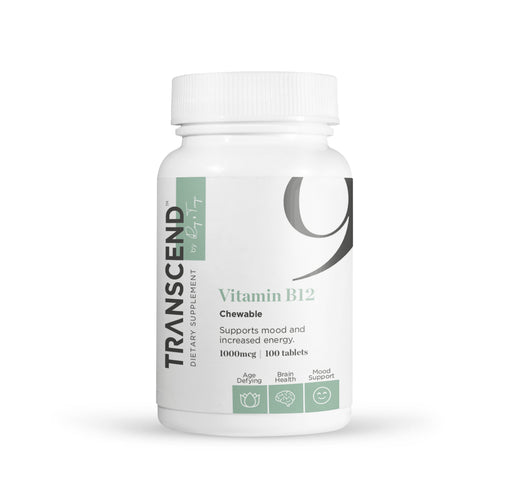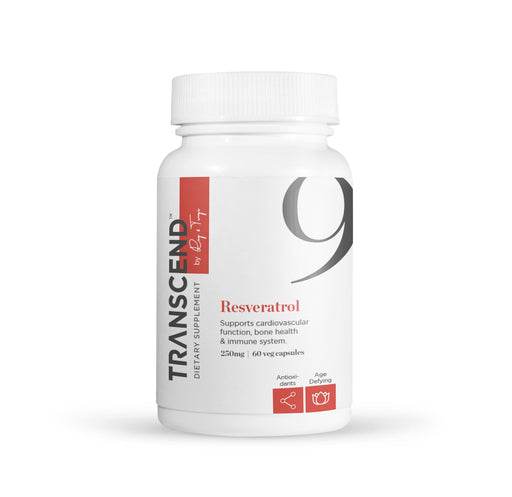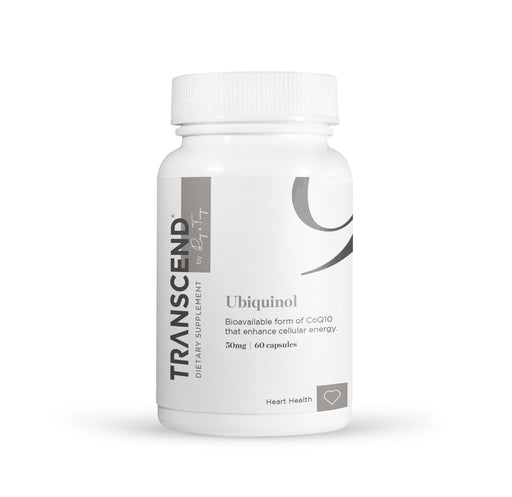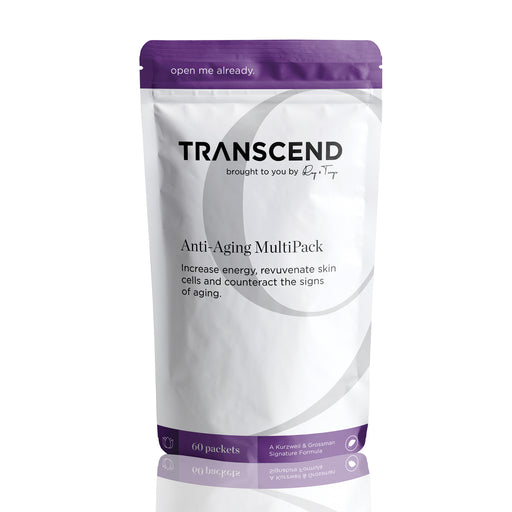
Vitamin B-12, Sublingual
Increased energy Improve mood Fight fatigue Common deficiency Better absorption Vitamin B12 (also called cobalamin) is one of eight water-solu...
View full details
It’s no secret that our brains change as we age. When we’re older, we may be able to draw on the wisdom of past experiences, but our brains (and bodies) take a little longer to get going than they did when we were younger. Thankfully, no matter your age, there are healthy and natural measures that you can take to improve your cognitive function.
Cognitive Impairment...
Dementia and Alzheimer’s disease may not be a normal part of the aging process, but they are diseases that are often associated with aging. These diseases aren’t limited to one particular age demographic, though. In the U.S. alone, there are 200,000 people under the age of 65 who experience early-onset Alzheimer’s.
The untrained eye might be tempted to dismiss early symptoms of Alzheimer’s disease. However, the Alzheimer's Association considers forgetting recently learned information to be an early sign of Alzheimer’s. This early sign might be easy to overlook, but conditions worsen as the disease progresses. Eventually, Alzheimer’s patients lose the ability to hold a conversation.
...vs Natural Cognitive Decline
Cognitive decline may be less alarming than Alzheimer’s or dementia, but it can still cause problems down the road. Cognitive impairment can look like short-term memory loss or mental fog and typically manifests in older people who don't maintain a healthy and active lifestyle.
What You Can Do
According to the Cleveland Clinic, people with an active social life experience the slowest rate of memory decline. Maintaining social relationships can benefit overall cognitive function.
Just like the rest of our body, our brains need regular exercise to stay in shape. Without daily practice, our cognitive abilities can decrease as we age. Here are a few examples of brain exercises to help avoid this mental decline:
Physical exercise paired with brain exercises can work together to improve cognitive function. Harvard Health Publishing states that 120 minutes of moderate exercise per week can improve brain health. Some moderate physical activities include:
Physical exercises like these can reduce inflammation and allow for improved cognitive function.
Nutrition
Improving overall health means more than just incorporating exercise into our lifestyle. A healthy diet can have a big impact on our mental and physical health. Food that supports brain function, or “brain food,” can make a big difference.
Fatty fish is a known brain food as it’s rich in Omega 3s which encourage improved cognitive function. Studies have shown that people who consume baked or broiled fish on a regular basis have more gray matter in their brains than anyone else. Gray matter is an essential component of the central nervous system and contains the nerve cells that control decision making, memory, and emotion.
Other brain foods include:
TRANSCEND’s Memory Support supplement can also help support cognitive health. Some of the supplement’s benefits include increased alertness, reduced short-term memory loss, cerebral circulation and overall brain function.
If you’re looking to add a new supplement to your diet, follow Step 1 of the 9 Steps of TRANSCEND and talk to your doctor before making any changes.

Increased energy Improve mood Fight fatigue Common deficiency Better absorption Vitamin B12 (also called cobalamin) is one of eight water-solu...
View full details
Combat internal aging Protect cells from radiation damage Increase antioxidant capacity Take with lecithin for better absorption Optimal dose for...
View full details
2022 update: Future batches of this product will use a Ubiquinol product that is a greenish capsule rather than a red softgel Bioavailable form o...
View full details
2022 update: to maintain the same dose of Phosphatidylcholine you are accustomed to, we are moving back to the 420mg in 2 softgels! 2022 update: ...
View full details
Leave a comment